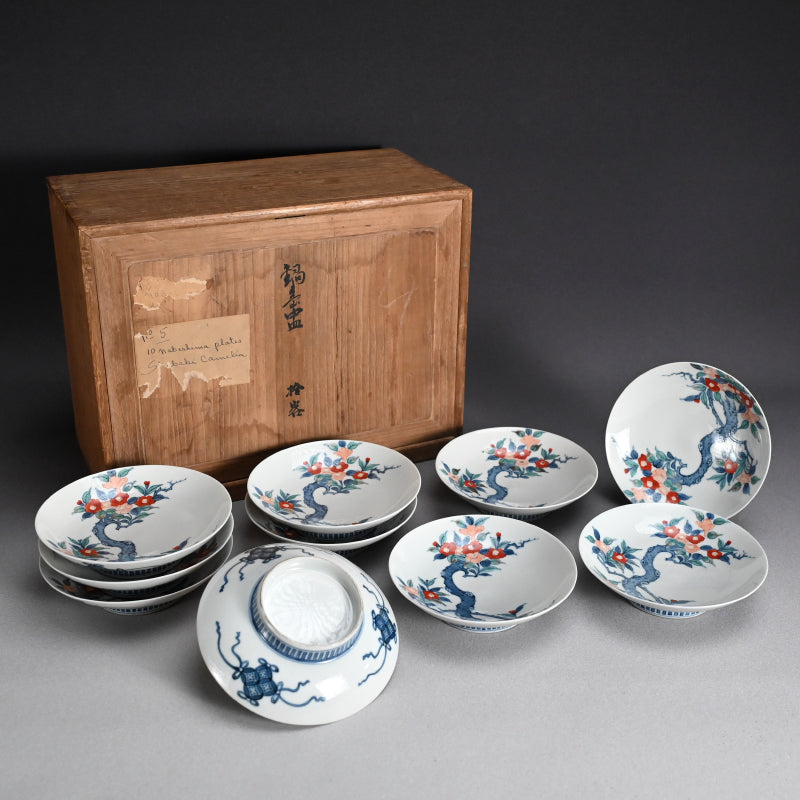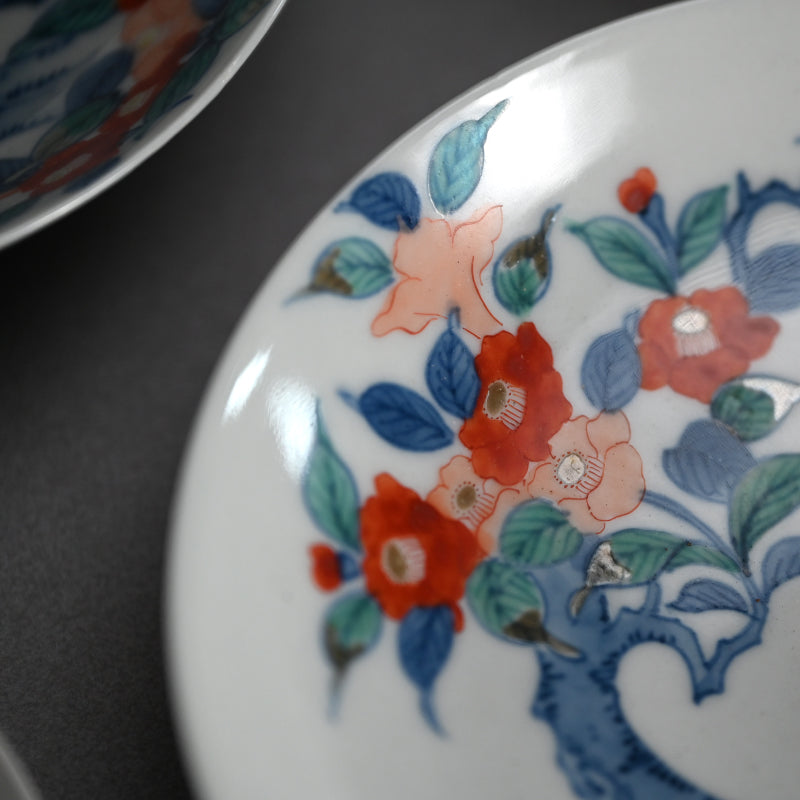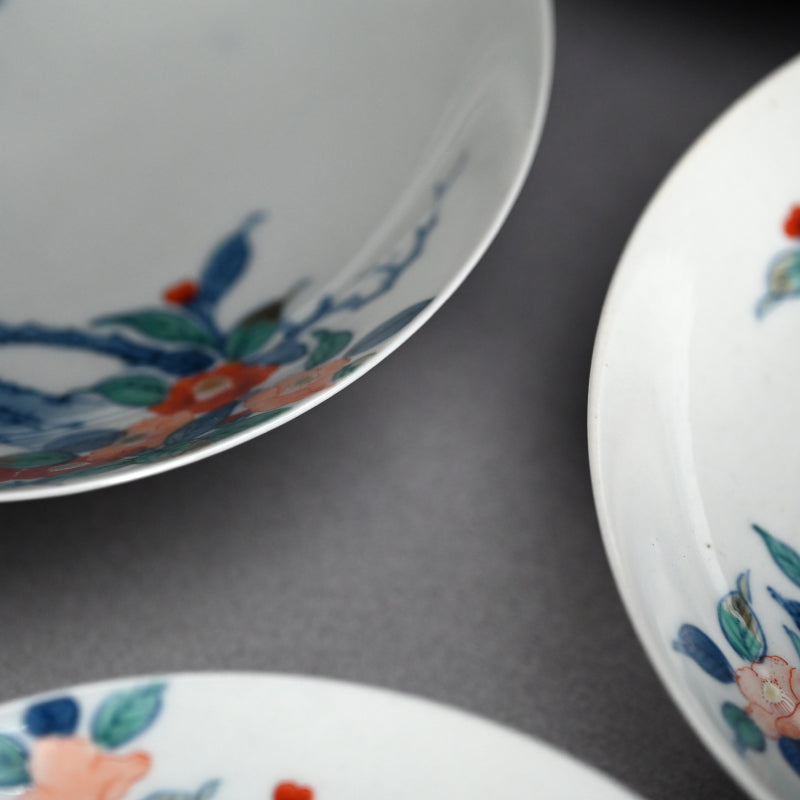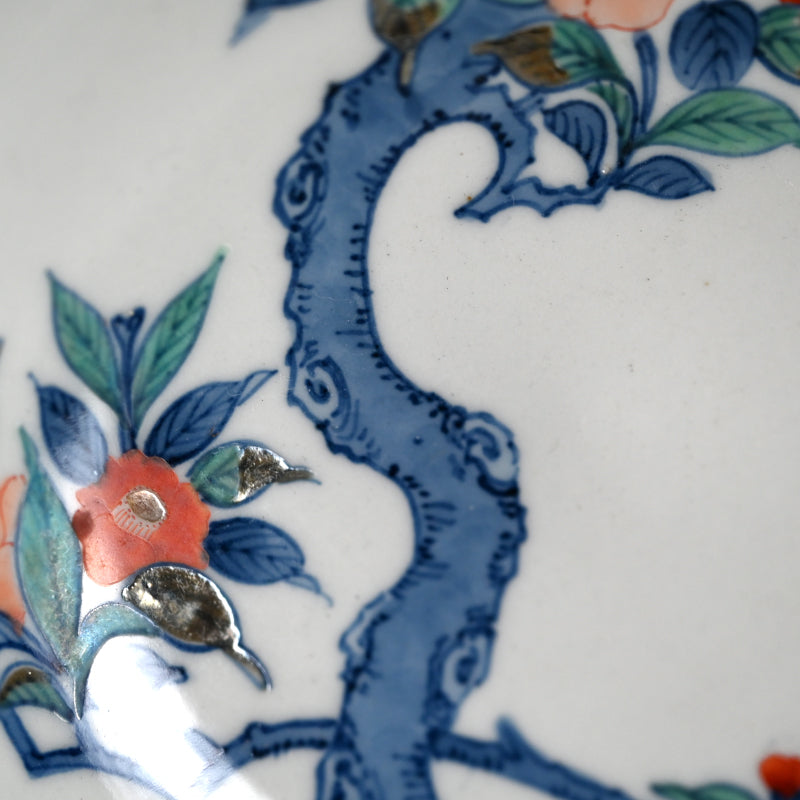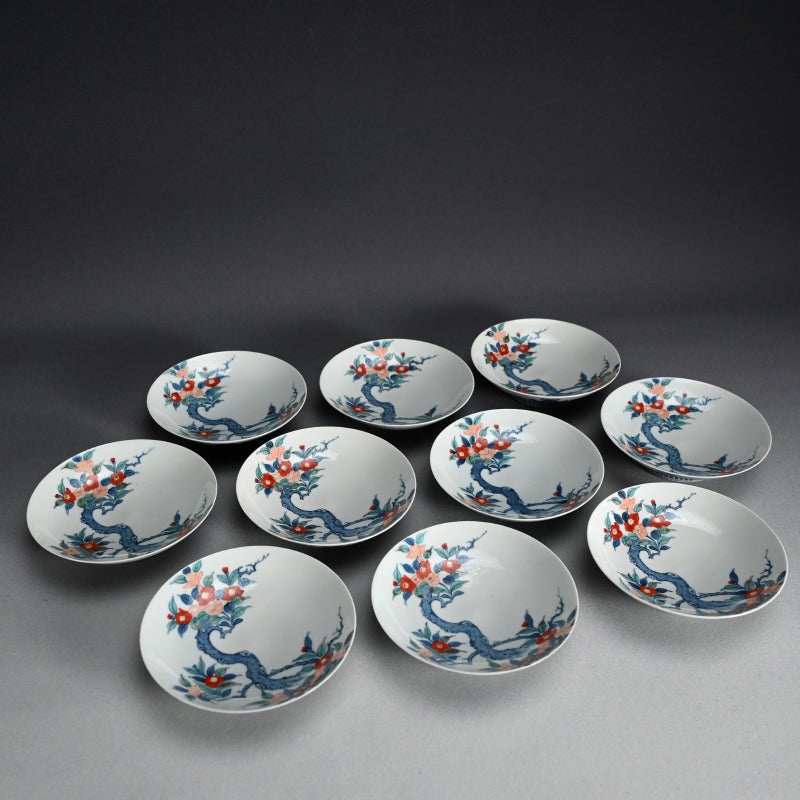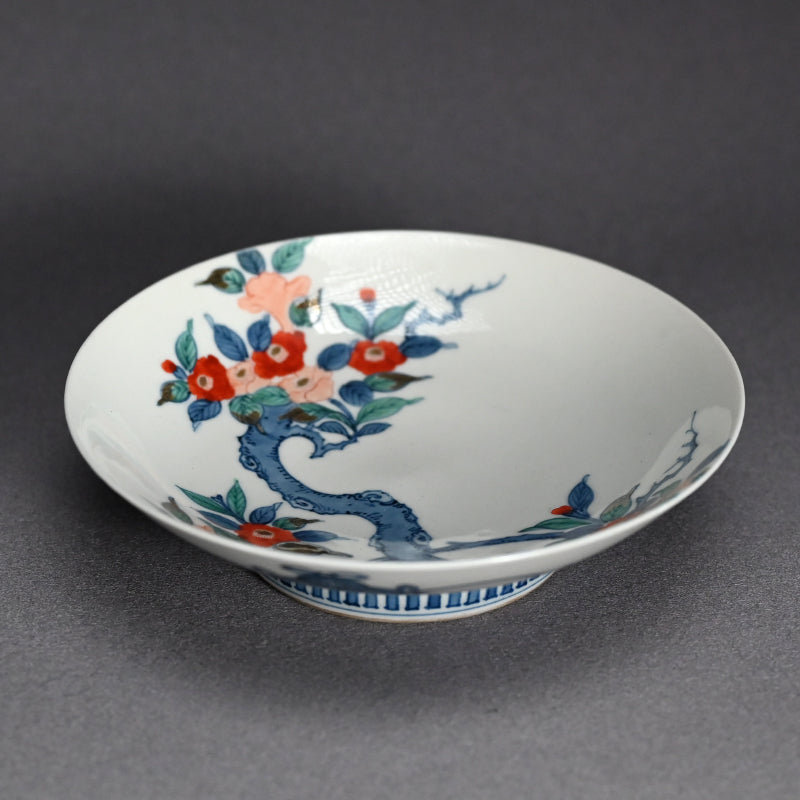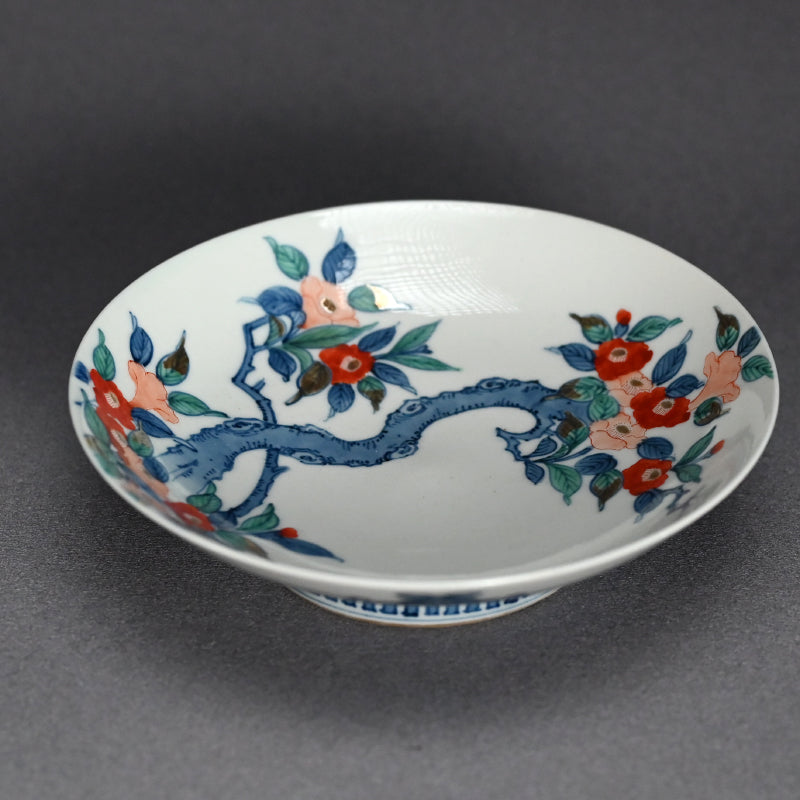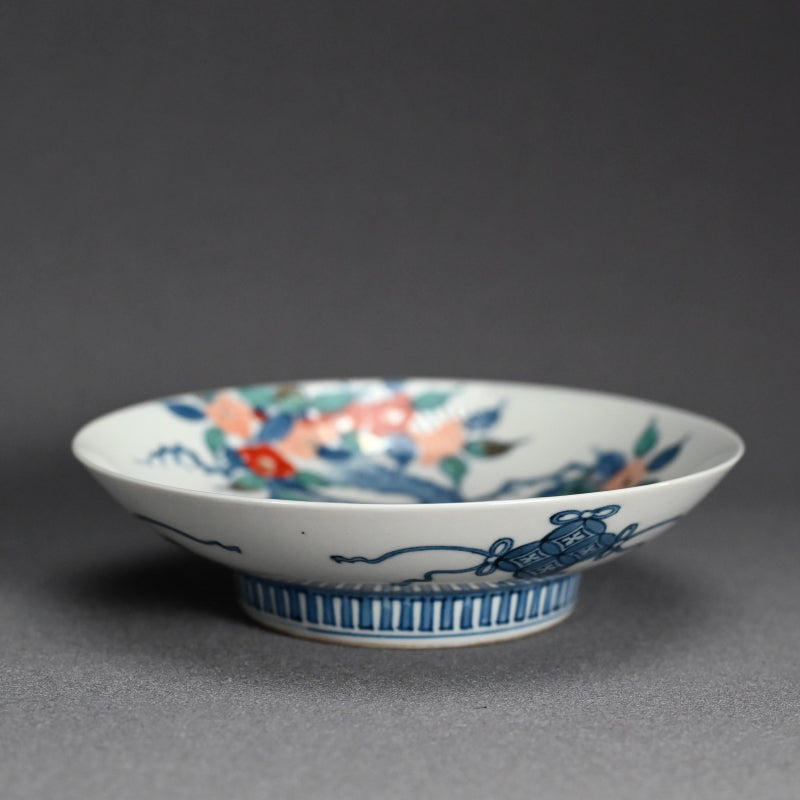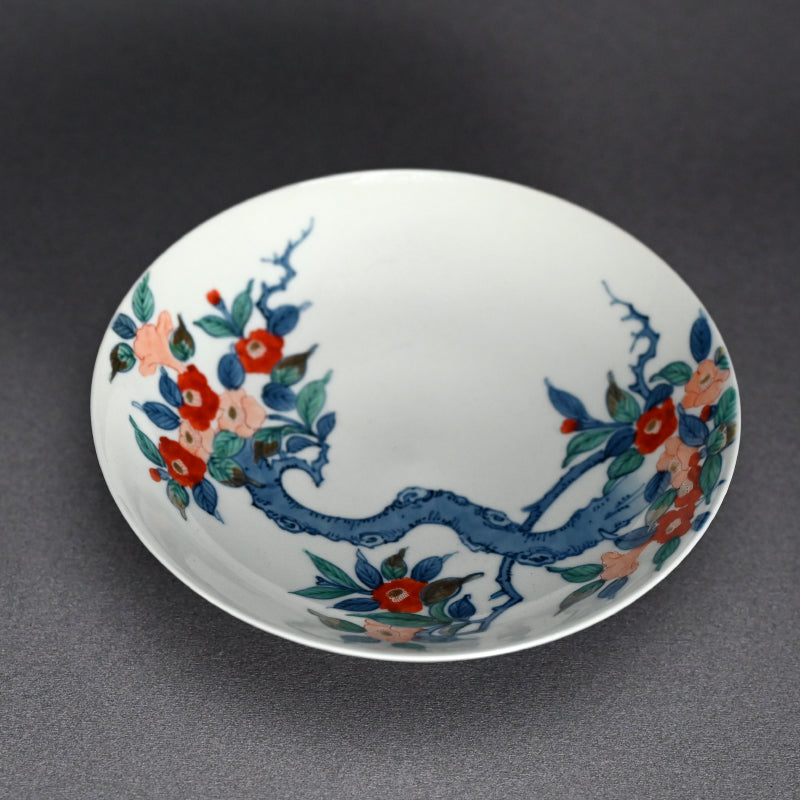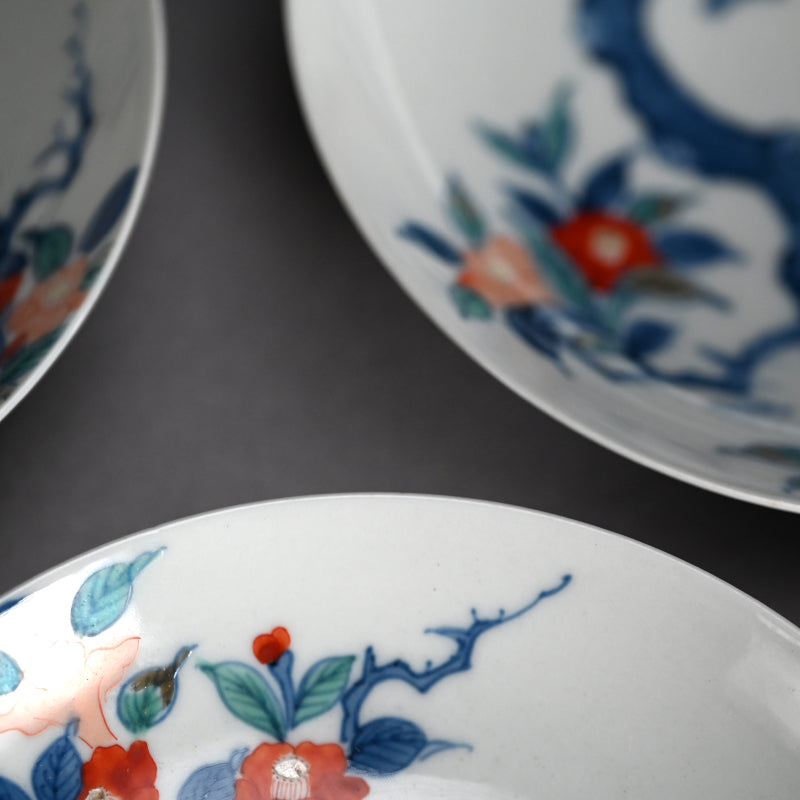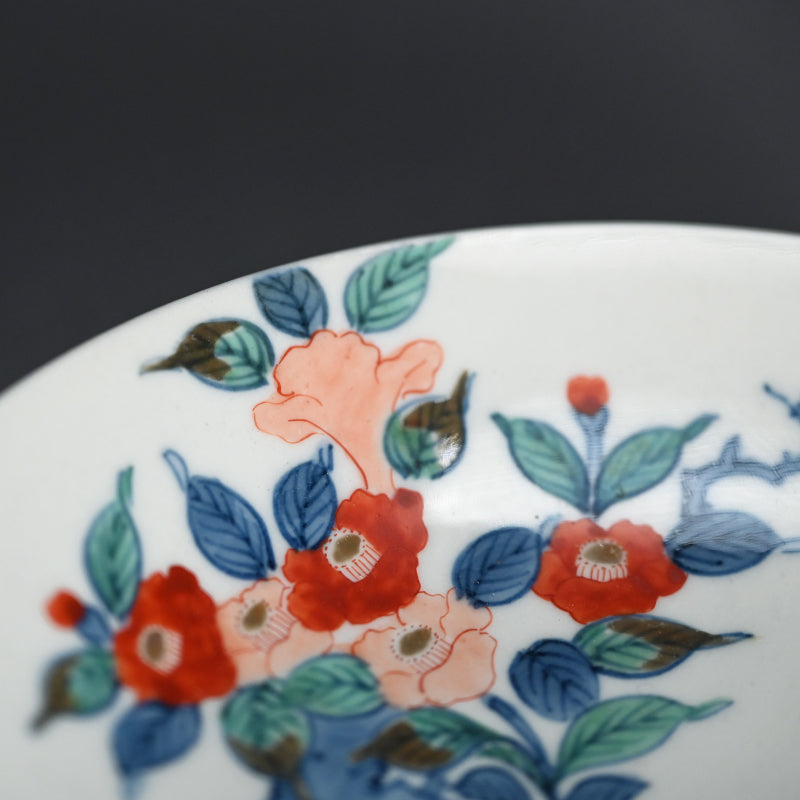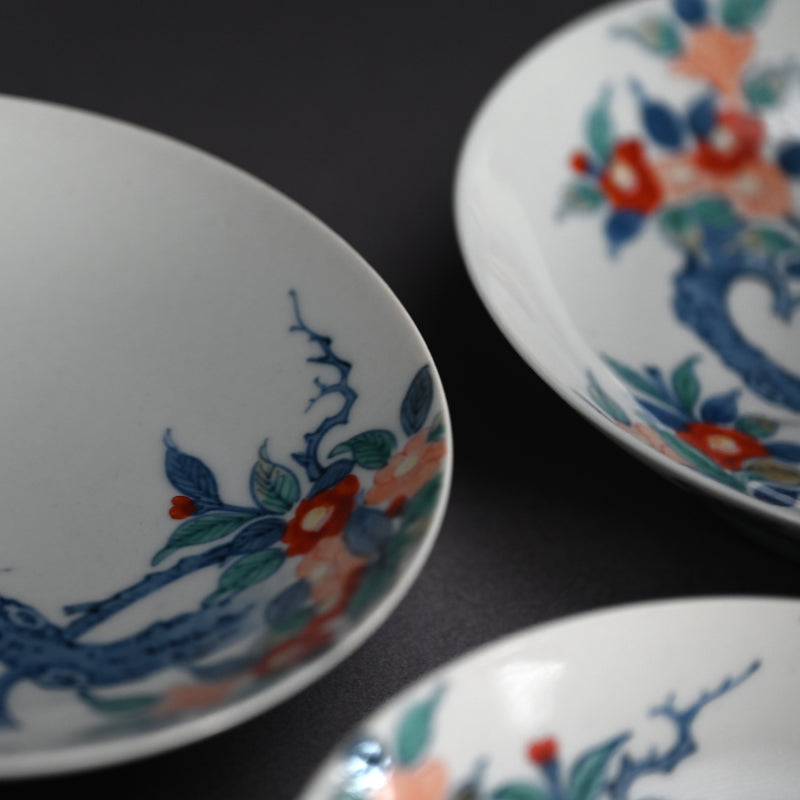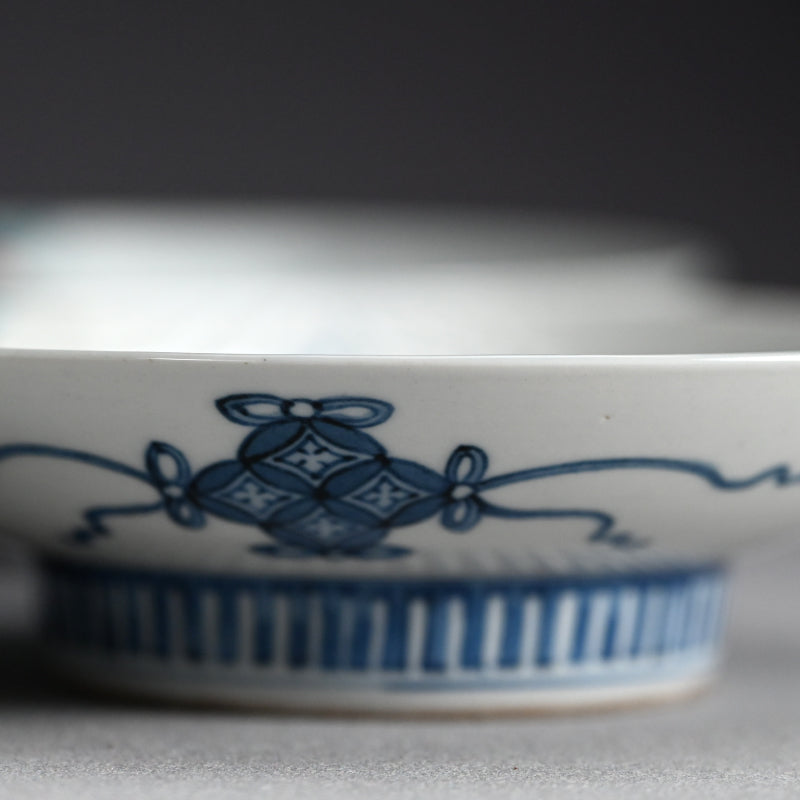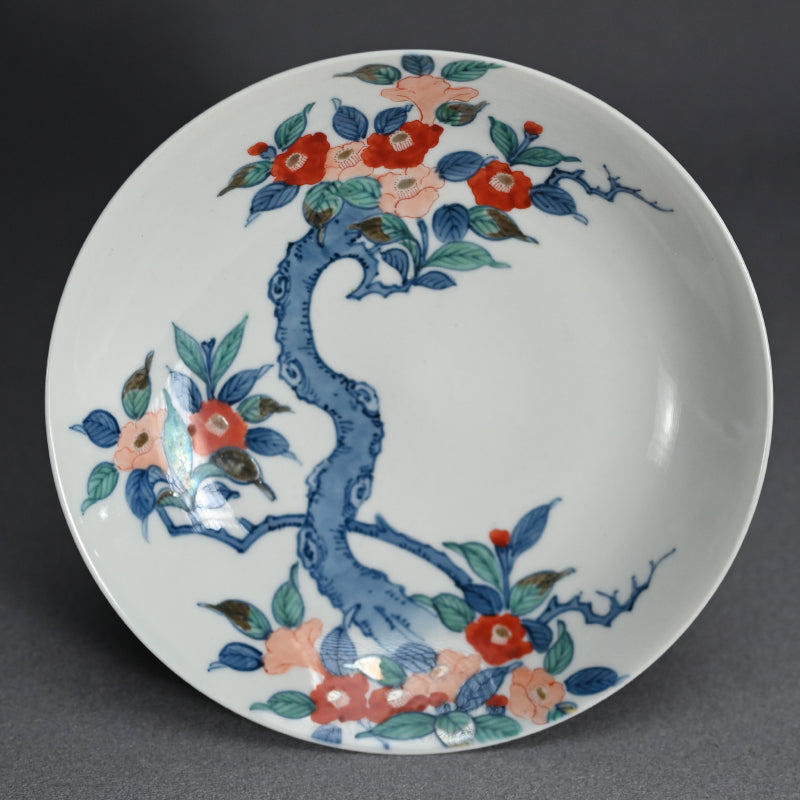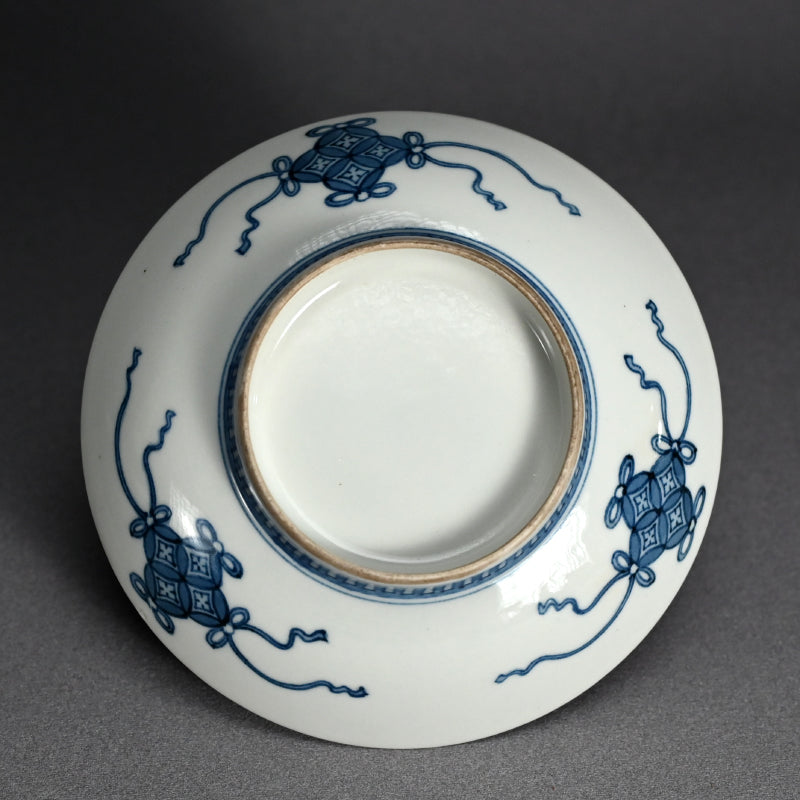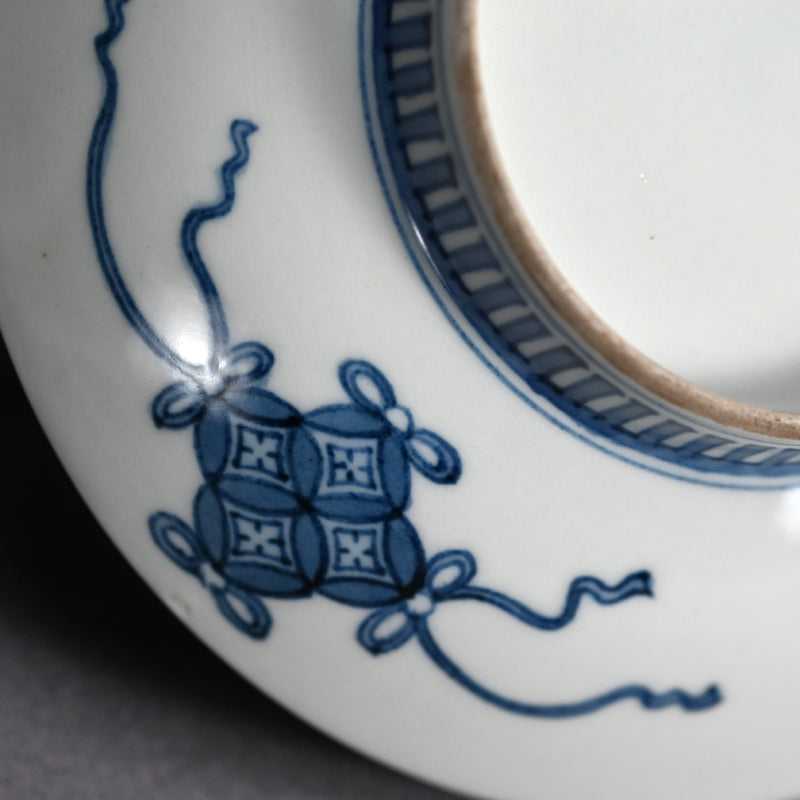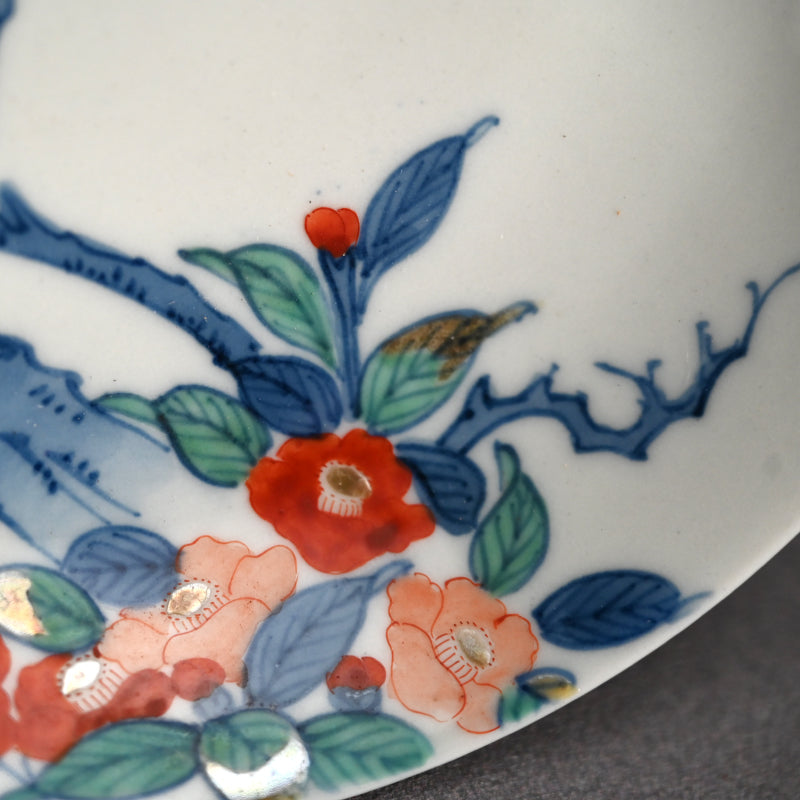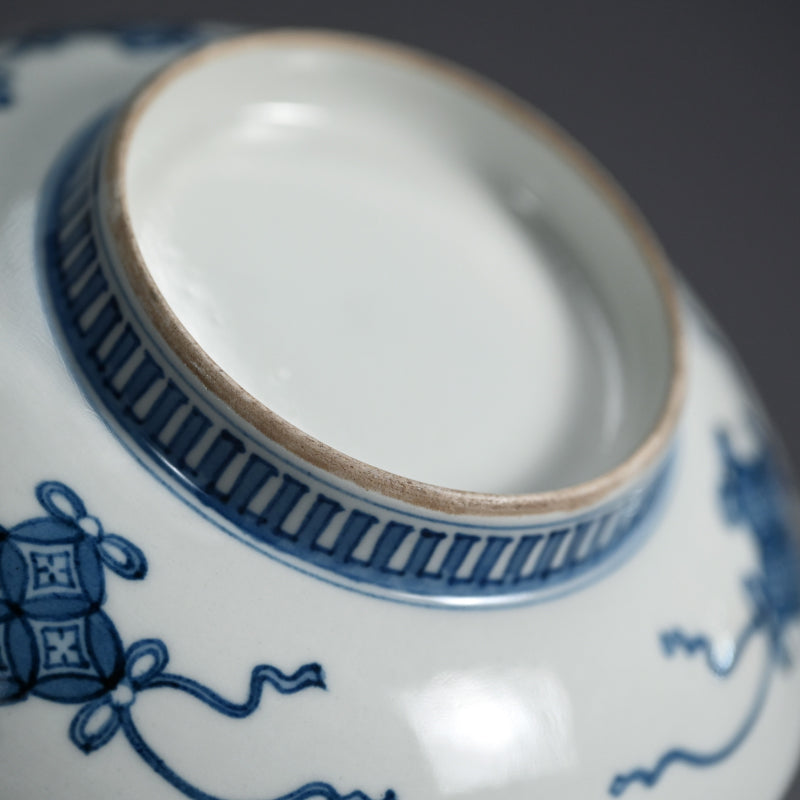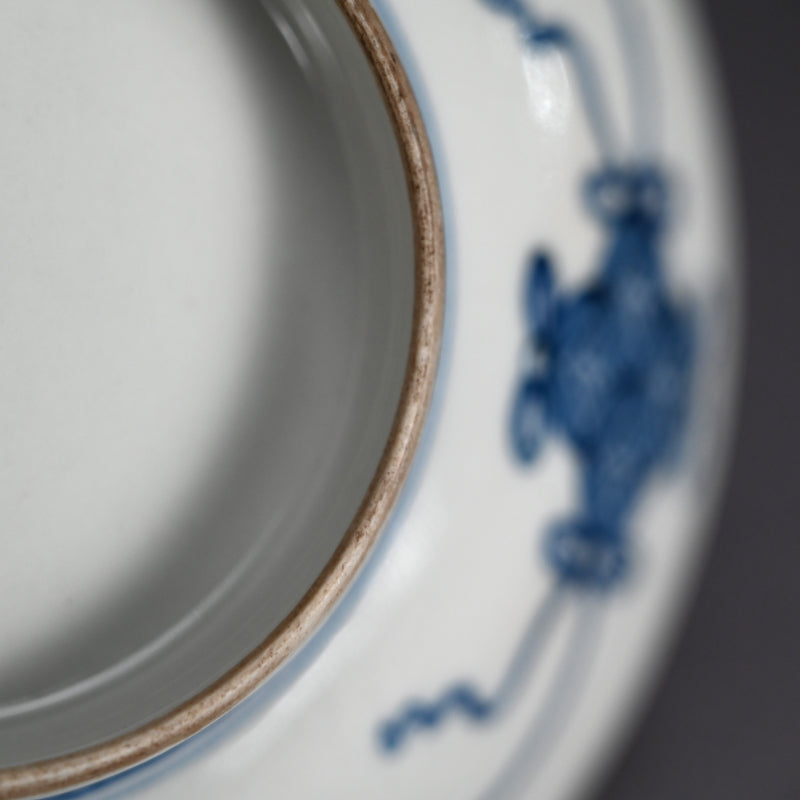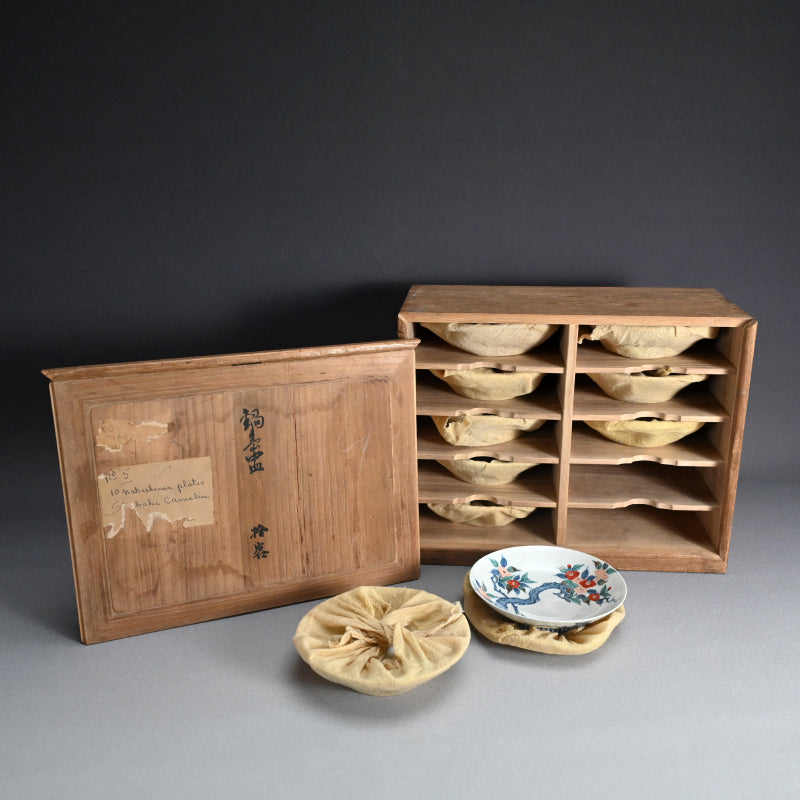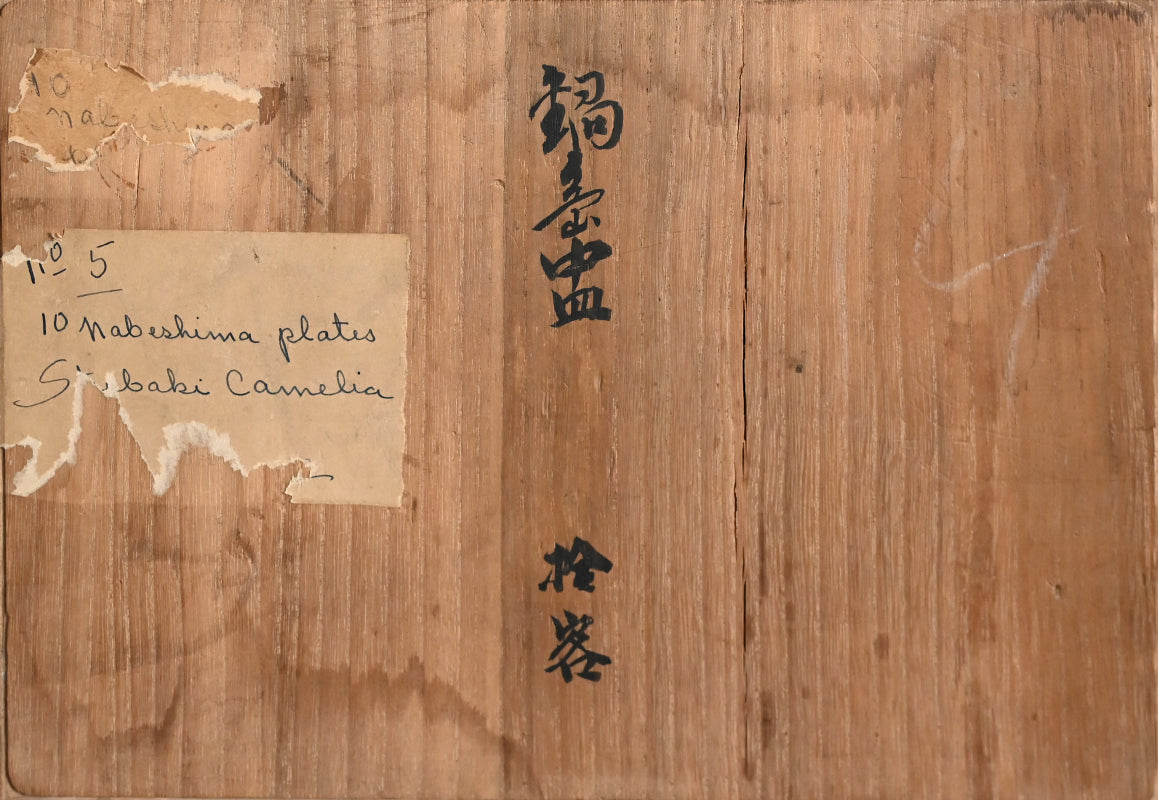19th Century 10 pc. Nabeshima Plate Set with Camelia Design
19th Century 10 pc. Nabeshima Plate Set with Camelia Design
Item Code: AZ1
Couldn't load pickup availability
An exquisite boxed set of ten Nabeshima plates hand decorated with blossoming trees in red, pink, green and underglaze blue with a steep cheek curving up to the rim on a typically elevated footring dating from the later 19th century. They come in an age darkened custom made Kiri-wood storage box, each in its own compartment, titled Nabeshima Chu-zara Jukyaku (10 midsized Nabeshima Dishes). A paper label later applied in handwritten English reads 10 nabeshima plates, Stubaki (sic) Camelia.
Nabeshima is a type of high-quality porcelain that was produced primarily during the Edo period (1603–1868) under the patronage of the Nabeshima clan, rulers of the Saga Domain in present-day Saga Prefecture, Kyushu. Unlike many other porcelain wares made for commercial sale, Nabeshima ware was produced exclusively for use by the feudal lords and as gifts to the shogunate and other elite families, making it a symbol of prestige and refinement. Production began in the late 17th century at the Okawachi kiln in Arita, an area already known for its porcelain. Nabeshima ware is renowned for its elegant designs, meticulous craftsmanship, and sophisticated overglaze enamel decoration (especially in blue, red, yellow, and green), often featuring stylized floral, geometric, and natural motifs influenced by classical Japanese painting and textiles. Distinct from the broader category of Arita ware, Nabeshima porcelain emphasized perfect form, refined decoration, and limited production, reflecting its elite purpose. Production declined in the Meiji period (1868–1912), but Nabeshima ware remains celebrated as one of the finest achievements in Japanese porcelain, exemplifying the fusion of technical mastery and aesthetic subtlety.
Antique, Japanese, ceramic, porcelain, Nabeshima
Share






















